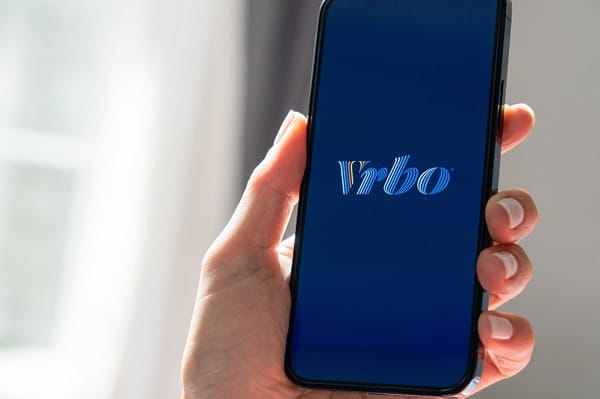Airbnb and Vrbo for Hosts: How to Thrive on Both Platforms in 2025

You’re probably wondering whether Airbnb or Vrbo is the better choice for your listing. Should you rely on Airbnb’s brand recognition or Vrbo’s sense of exclusivity? But what if there’s a third option—one that gives you the best of both worlds?
Hosts who list their property on both platforms are the clear winners in this epic battle. Decide to go this way and you’re opening the door to two massive pools of potential guests. Find out how savvy hosts use both platforms to maximize profit without putting in any extra effort.
Here are the details you need to know about the differences between Vrbo and Airbnb. Discover how to make hosting on both platforms seamless and find success with multi-platform management.
Airbnb vs. Vrbo: Key Differences
There are many distinguishing features between the various vacation rental booking platforms. Here is a brief summary of some of the differences, including those that you can use to your advantage:
No Shared Spaces vs Shared Spaces Policy
Unlike Airbnb, none of the listings on Vrbo are individual rooms or shared space listings. That means that you will not be able to rent out a room only. Instead, you will list the entire home as the rental on Vrbo if you want to attract bookings by families or larger groups.
While this might be a boon for some vacation rental sites and hosts, for other hosts, it means that they won’t be able to use Vrbo. However, if you’re able to list your property on all of these platforms, you will reap benefits. For presence on Vrbo, you will have to exclude low-budget guests and solo travelers who want to rent spare rooms or couches.
Unique Properties on Airbnb vs Family Houses and Luxury Villas on Vrbo
While Vrbo excels in traditional vacation rentals, Airbnb is known for its wide range of unique accommodations. On Airbnb, you’ll find that the number of unique stay listings has grown by 123% from 2020 to 2024, according to AirDNA.
If your property is one that a guest might consider to be out of the ordinary, Airbnb is the best place to make your property stand out given that they’ve already made a name for themselves in this niche.
On Airbnb, play up the uniqueness of your property while you market your property in the more traditional manner on the other platforms to see which listing version yields the most bookings.
That doesn't mean Vrbo attracts dull, plain listings. In fact, there's a wide array of top-notch listings on Vrbo, from cozy cabins to luxury villas.
Reviews and Competition
Airbnb has an active review culture where guests mainly book based on reviews. In addition, Airbnb encourages hosts to maintain a high review score by improving their services. Due to often fierce competition, hosts who perform best typically have very high ratings of above 4.8.
On Vrbo there's less competition, and some properties get listed on additional websites owned by the Expedia group such as Expedia, Trivago, and Travelocity.
This provides an advantage to hosts since it might be easier to get quality bookings in comparison to Airbnb.
User Experience
Airbnb has long led the way with a strong focus on user experience in vacation rentals. The booking process through the app is smooth, and they’re constantly rolling out new features and updates.
Vrbo, on the other hand, offers a more detailed and functional search experience, so guests can go into every detail they'd like to know about the property.
While Airbnb handles issues through its dedicated Resolution Center, Vrbo also offers strong in-app customer support, including 24/7 assistance, with a focus on booking protection and resolving payment disputes.
Make no mistake, Vrbo has been working to keep pace with its biggest competitor by adding new features such as instant book, and its overall user experience has significantly improved over the years.
Pricing
Vrbo and Airbnb charge guests and hosts a booking fee. They offer a few types of fee structures. In general, on Airbnb, hosts pay from 3% to 16%, while Vrbo fees for hosts are usually a 3% payment processing fee plus a 5% commission fee, or hosts can choose to pay Vrbo an annual flat fee.
Both platforms have been more upfront with showing the total price to guests, so hidden fees, such as cleaning fees, have become less of an issue.
Cancellation Policies
Both platforms put you in the driver's seat when it comes to cancellations. You can choose more flexible cancellation policies that are guest-friendly, or you can keep things strict with no-refund policies.
Why You Should Be on Both Platforms
Vrbo rentals and Airbnb properties are the go-to option for millions of people who want more comfort, freedom, or a unique experience than a hotel room can provide.
Homeowners will benefit from exposure on both platforms. Not only because you will have more reservations pouring in!
With your listing available on Airbnb and Vrbo at the same time, you can also split-test your listings by writing slightly different headlines and descriptions. Or try targeting your listings to different audiences on each platform, such as families versus business travelers.
In fact, you can experiment with different pricing as well. By doing this you can increase your conversion rate and uncover the best-performing versions of your listings.
How to Prevent the Chaos Caused by Double Bookings
Whether it’s peak season or off-season, you’re guaranteed to receive a lot more inquiries on multiple rental platforms. However, managing two platforms instead of just one brings a new challenge: How do you keep both calendars updated in real time?
Overlapping booking dates can be a real headache. A double booking means one reservation has to be canceled. That spoils the guest experience, hurts your credibility as a host, and can lead to penalties from the platform for repeated cancellations. Before starting with multi-platform management, understand how to sync your calendars.
There are three ways to sync your calendars:
- Manual Syncing
You can update each platform’s calendar manually every time you receive a booking. This method is free but time-consuming and prone to human error.
- Using iCal
iCal links allow you to connect calendars between platforms like Airbnb and Vrbo. It’s an automated, free option, but updates are sometimes delayed, which still leaves a high risk of double bookings. Find iCal links in the calendar settings of the platform dashboards.
- Connecting with a Property Management System
A PMS such as iGMS offers real-time calendar syncing across platforms, along with additional features like centralized messaging and automated tasks. It automatically blocks off booked dates.
Tips on Listing on Both Airbnb and Vrbo
1. High-Quality Listings
Create detailed and attractive property listings with high-quality photos. Highlight the unique features and amenities of your property. Check if the property types you manage match with your target guests.
2. Competitive Pricing
Research similar properties in your area and set competitive pricing. Price your property competitively to attract more guests and increase your monthly rental income. Also consider service fees in your cost analysis to ensure that you are staying competitive.
Consider dynamic pricing strategies that adjust rates based on demand, seasonality, and local events. Also be sure to configure your listing settings so the booking subtotal breakdown, including fees, is always visible for guests.
3. Professional Photography
Invest in professional photography to showcase your property in the best possible light. High-quality photos will significantly increase bookings.
4. Consistent and Prompt Communication
Respond to guest inquiries and messages promptly and professionally. Quick responses lead to greater visibility. A property management software like iGMS is ideal for managing speedy response rates, whether you own one or multiple listings.
5. Positive Reviews
Encourage guests to leave positive reviews after their stay. High ratings and positive reviews can boost your listing’s visibility and credibility.
6. Offer Competitive Amenities
Provide amenities that are in demand, such as Wi-Fi, a well-equipped kitchen, comfortable beds, and a clean and well-maintained property.
Consider providing extras like coffee makers, toiletries, and local recommendations to enhance the guest experience.
7. Flexible Booking Policies
Offer flexible cancellation policies to attract more bookings for your vacation home, especially during uncertain times. It’s tempting as a property owner and Airbnb host to want to put the strictest cancellation policies in place, but it can often scare guests away and mean your Airbnb calendar is left unbooked.
8. Optimize Listing Titles and Keywords
Use relevant keywords in your listing titles and descriptions to improve search visibility. Research popular search terms in your area.
9. Calendar Sync and Channel Management
As stated above, you need a channel manager or software that syncs your calendars across multiple platforms to prevent double bookings.
10. Manage Your Ratings
Address any issues or concerns raised by guests promptly and professionally to maintain a high rating. If your property is listed on more than one listing site, you need to ensure that your ratings are good across those multiple platforms. It builds trust with potential guests.
11. Utilize Seasonal Promotions
Offer discounts or special promotions during peak seasons or holidays to attract more bookings. Potential guests are always looking for discount codes and a pay per booking model is the easiest model to adapt with discounts.
12. Monitor Competitors
Keep an eye on your competition and adjust your pricing and offerings accordingly.
13. Act on Guest Feedback
Encourage guests to provide feedback and use their suggestions to make improvements to your property and service.
Craft Your Vacation Rental Listing Strategy with Your PMS
A multiplatform vacation rental strategy is only as strong as your channel management. The easiest way to stay on top of multiple listings across different platforms is to connect all your channels through a property management system like iGMS.
A smart, strategic approach means you:
- Put the guest experience first – No more cancellations due to calendar mix-ups.
- Eliminate manual work – No need to jump between platforms every time you get a booking.
- Think long-term about your rental business – Don’t rely on just one platform to grow.
This is how iGMs coordinates all your accounts:
- Manages multiple accounts and listings on the top OTAs from a single interface
- Synchronizes reservations across multiple platforms to eliminate the risk of double bookings
- Improves communication with automated templates and triggered messaging and automates guest reviews
Conclusion
Making your vacation rentals available on Airbnb and Vrbo and other vacation rental sites simultaneously is the best way to maximize your bookings and increase your profits from your business.
However, making sure that everything goes smoothly requires careful management and the use of vacation rental software for the best results. It will not only automate your day-to-day routine but also help you increase your hosting revenue and grow your business.




![Complete Vacation Rental Email Marketing for Hosts [+ Top Tools]](/content/images/size/w600/2026/01/email-marketing.jpg)
